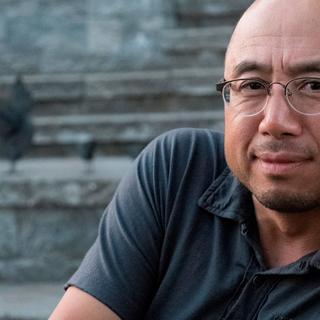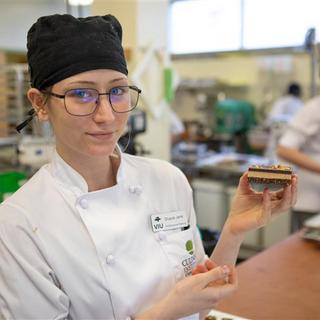Helping people access transformational education programs is a passion for Samantha Letourneau, who recently started as Vancouver Island University’s (VIU’s) Canada Learning Bond Project Lead.
Through this new role, made possible by funding from Employment and Social Development Canada, she will expand VIU’s activities and outreach initiatives that help students and families sign up for free education savings grants to help pave the way to post-secondary. She shares her vision for helping more students access these life-changing grants, and how the VIU community can help.
Tell us a bit about yourself.
I’m a graduate of VIU with a Bachelor of Arts in Global Studies. I went on to complete my MA in Adult Education at St Francis Xavier University and have been working in the not-for-profit sector for 25 years, with various agencies, both on and off the Island. These include Oxfam Canada, West Coast Legal Education & Action Fund, Central Vancouver Island Multicultural Society and Literacy Central Vancouver Island.
Can you share a few details about the CLB Now project?
VIU recently received funding from the Government of Canada’s Canada Learning Bond Pilot Project to enhance its education and awareness initiatives about the CLB both amongst university students and in the wider community – including at other post-secondary institutions. It is available to students from modest-income families born in 2004 or later. It provides an initial $500 for the first year the child is eligible, up to age 15, plus $100 for each additional year of eligibility – up to 15 years – for a maximum of $2,000.
The funding will allow VIU to enhance community outreach efforts and develop a model to connect with university students who may be eligible for the CLB but are not currently registered to receive it. Beginning in January 2022, individuals who were eligible for the CLB as children but did not receive it can apply for it themselves when they reach the age of 18. Given the region’s historically low uptake in terms of the number of eligible families accessing these funds, we believe there are lots of students we can support to get this extra money for post-secondary.
How do you see your background benefitting your new position at VIU?
My role is to oversee the outreach to approximately 13,000 children in this region who have not yet applied for the federal program and those who are of age to apply on their own behalf. This is accomplished through cultivating, managing and stewarding partner relationships with internal VIU stakeholders, all levels of government, philanthropic foundations, social service agencies and organizations that serve children and families provincially and nationally.
Working in the not-for-profit sector in various leadership and coordination roles, I have supported people from vulnerable and diverse backgrounds, through facilitating diversity, equity and human rights projects, and offering community-based literacy programs that are inclusive and reflect the priorities of the region we live in. This has given me the ability to work collaboratively with various levels of government, community-based agencies and school districts across BC. With the relationships I have established, I hope to raise the awareness of the CLB and reach families and organizations who may not know about it.
The CLB project is another way of contributing to the important work of inclusion and equity by providing families of modest income an opportunity to access funds to support their child’s future education. It is so valuable in addressing financial disparities that exist in society.
Yours is an entirely new role at VIU, one that is now funded through a federal government grant. What is your vision for the expansion of VIU’s activities promoting education savings grants?
This project will activate, engage and support VIU frontline staff as CLB champions, who will support the identification of and connection with CLB-eligible students transitioning to VIU. I want to expand the reach of the CLB beyond Nanaimo and connect with organizations and educational institutions who can assist and work with us to inform eligible participants.
It’s part of a larger initiative to help future and current students at VIU hone their financial literacy skills and learn about other financial supports available here, such as the Tuition Waiver program. Access to education has a positive impact on the well-being of a community, everyone has a right to education.
What do you think are some of the biggest barriers families face in accessing these grants and how can VIU and/or the wider community help them navigate these challenges?
I think the biggest barrier at this moment is that many families and students who were born in 2004 and later don’t know what the Canada Learning Bond is. So, much of the work we are currently doing is educating people on what it is and how to access it. The next step is to streamline the CLB process to make it easier to register.





